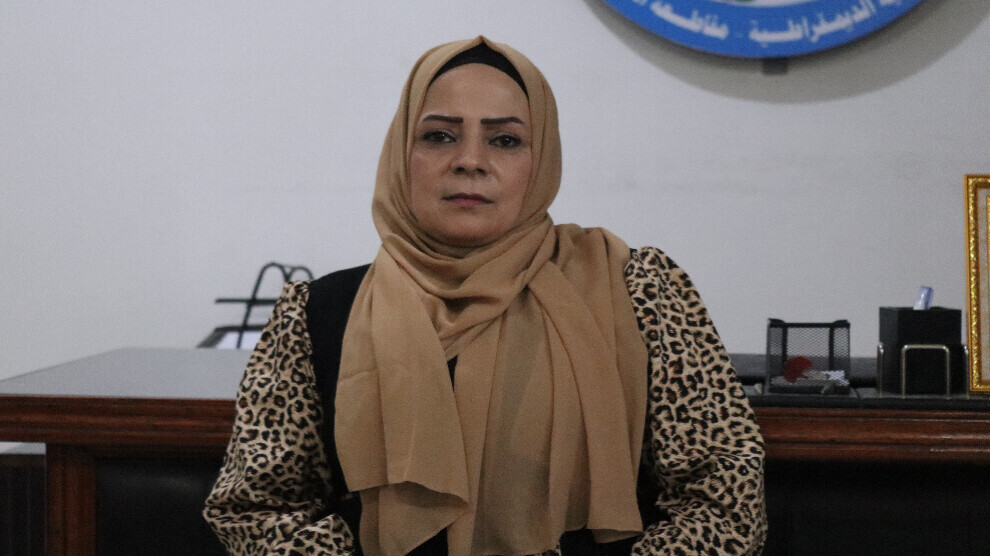On the Sixth Anniversary of the Occupation: Safe Return Is a Right, Not a Request
October 9 marks the sixth anniversary of Turkey’s occupation of the Syrian border towns of Ras al-Ain (Serê Kaniyê) and Tell Abyad (Girê Spî), seized in 2019 through a violent military assault that.

Nourshan Abdi
Ain Issa —Thousands of families were displaced during that offensive and remain uprooted today, scattered across camps and schools in northeastern Syria. Despite shifting political powers in Damascus, their situation has remained largely unchanged — one of loss, endurance, and waiting.“We Are Reliving the Tragedy”Aziza Hassan, the Co-Chair of Ain Issa City Council, says the anniversary reopens deep wounds for the displaced.> “October 9 brings back painful memories. We are reliving the tragedy once again,” she says.
Hassan links Turkey’s current policies in Syria to broader expansionist ambitions. “Thousands of families have suffered for Turkey’s control over a strategic border area like Ras al-Ain,” she explains.“Under the false pretext of border security, Turkey occupied our land, looted our homes, and exploited Syria’s people to serve its own goals.”
According to Hassan, Turkey used Tell Abyad as a gateway to funnel militants, logistics, and weapon supplies across the border — strengthening extremist groups such as ISIS.
Despite the hardship of displacement, she says, many remain resilient.
“The displaced from Tell Abyad live in camps under harsh conditions, but they refuse to give up their right to return. They endure the freezing winters and scorching summers to prove their unwavering attachment to their land.”
Colonial Ambitions Under the Guise of “Peace”
Recalling the days before the invasion, Hassan describes an atmosphere of fear and defiance.
“We felt something was coming, but we stayed. Even as threats increased, people refused to abandon their homes. When the attack began, families moved from house to house to shield their children from bombardment. Some paid with their lives for choosing to stay. My own family held out in Tell Abyad for about ten days.”
The military campaign was ironically named “Operation Peace Spring.”
> “We call it the Spring of Blood, Murder, and Plunder,” Hassan says bitterly. “Turkey killed civilians — children, women, and the elderly — under the pretext of protecting its borders. We had never violated those borders, yet they invaded and stole our land.”
Life Under Occupation: A Struggle to Survive
In the six years since, those who remained in the occupied zones have faced a dire humanitarian crisis.
> “People lack even the basics — food, water, fuel, electricity,” Hassan says. “Many continue to flee to areas under the Autonomous Administration, desperate for safety and dignity.”
Security, too, has collapsed.
> “Anyone who leaves home for work or daily needs doesn’t know if they’ll return alive. Abductions and killings have become common.”
Women, once active in education and public life, are now among the primary victims.
“Before the occupation, women could study, work, and live freely. Now, many are subjected to kidnapping, rape, and murder. Turkey hasn’t only occupied our land — it has targeted our women, our dignity, and our future.” Unfulfilled Promises of Return
The Autonomous Administration of North and East Syria has repeatedly sought agreements to secure a safe return for the displaced, but none have been implemented.
“We continue to discuss the issue of occupied territories and safe return, but promises remain unkept,” Hassan laments. “Even those who tried to return were kidnapped or disappeared.”
Still, hope persists among the displaced.
“We live with the dream of going home. Whether in camps or temporary shelters, our hearts beat for Tell Abyad and Ras al-Ain. In the camps, people plant trees and flowers to remind themselves — we are the rightful owners of this land, and one day, we will go back.”
Hassan concludes with a message of defiance and faith in liberation.
“We hope that the day of occupation will one day become a day of freedom and victory. For us, October is a month of grief — but also of resistance. We are waiting to return to our homes, to live again in peace and dignity.”
